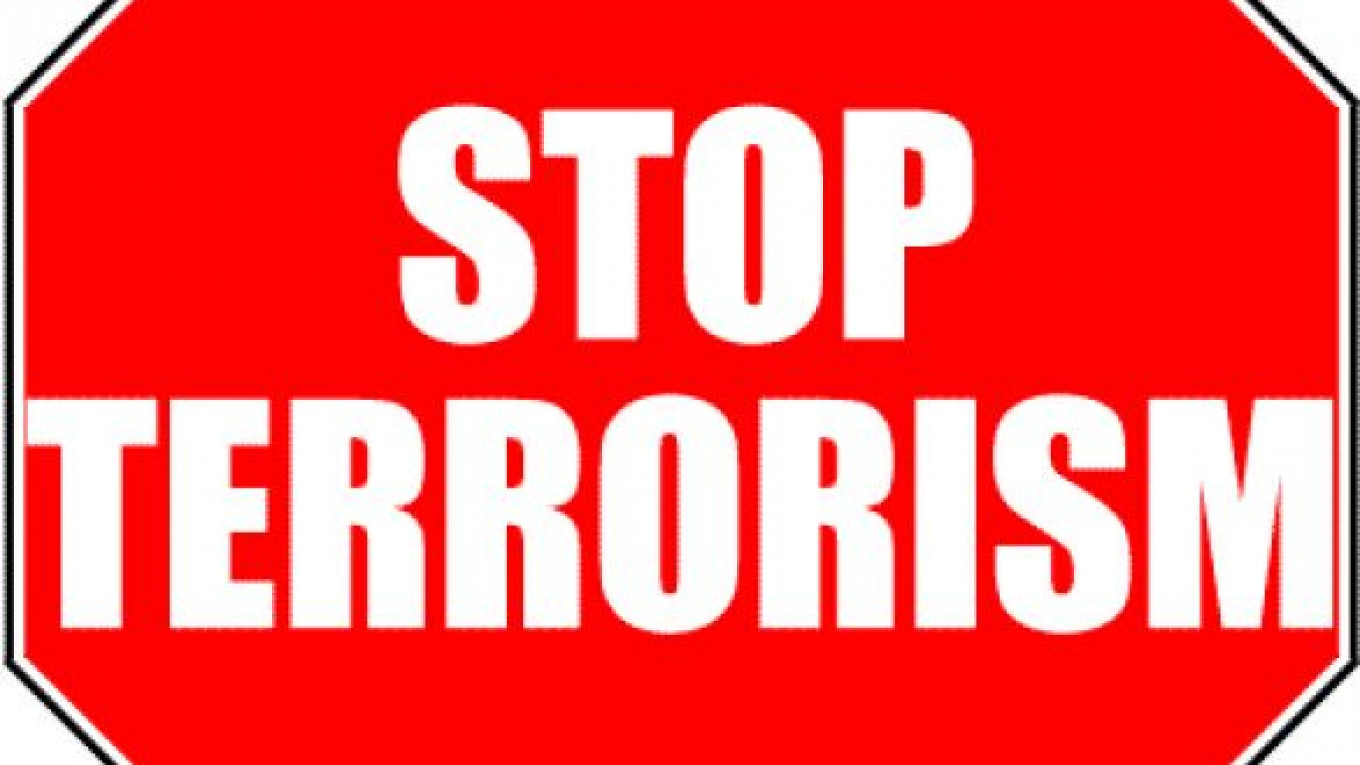The State Duma will consider a package of anti-terrorism bills that would oblige websites to inform authorities about their users, restrict anonymous web payments and also broaden powers of security officers and increase prison terms for terrorism-related offenses.
A group of federal lawmakers submitted the legislation to the Duma on Wednesday. The package of three bills was published in the Duma's online database.
The measures have long been in the works on the initiative of law enforcement agencies but the paperwork was expedited after two bombings in the southern city of Volgorad killed 34 and injured 70 people in late December, co-author of the legislation, Leonid Levin of A Just Russia, told The Moscow Times. ?
“All of these bills are aimed at allowing law enforcement agencies to fight terrorist acts before they happen,” Levin said by phone.
In particular, the bills would oblige “websites, content providers and possibly even search engines,” defined in the bill as individuals and companies “organizing information exchange” between users, to store all the information about their users for six months and provide it to law enforcement agencies if they request, Levin said.
Failure to do so would result in fines of up to 200,000 rubles ($6,000), according to the text of one of the bills.
“This will not concern ordinary citizens, but will be implemented only when state security is at stake,” Levin said, adding that the legislation would allow law enforcement officers to “track down contacts” of a terrorism suspect before a terror attack.
Website owners will also have to notify the Federal Mass Media Inspection Service any time data or communication is exchanged between their users, according to the text of one of the bills. Failure to do so would result in fines of up to 200,000 rubles ($6,000), the bill said.
Another piece of the legislation would restrict anonymous web payments made in Russia to 1,000 rubles ($30) per day for one payment or 15,000 rubles ($450) per month for one user, and ban anonymous web payments from abroad, Levin said.
The authorities would be given the task of monitoring web payments to nongovernmental organizations if they come from abroad and exceed 100,000 rubles ($3,000), Levin said. ?
Apart from control over the Internet, the proposed legislation would also increase the maximum prison term for founding a terrorist group or carrying out a terrorist attack, or financing terrorism, from 20 years to life in prison, Levin said.
The maximum term for creating an illegal rebel group would climb from 10 years to life in prison, according to the text of one of the bills.
The legislation would also give Federal Security Service officers the right to search terrorism suspects and their belongings, a right that currently only police have, Levin said.
Spokespeople for the other five co-authors of the bills — Andrei Lugovoi and Igor Lebedev of LDPR, Shamasail Saraliyev of United Russia and Oleg Denisenko of the Communist Party, said they were not available for a phone interview Wednesday afternoon.
Contact the author at n.krainova@imedia.ru
A Message from The Moscow Times:
Dear readers,
We are facing unprecedented challenges. Russia's Prosecutor General's Office has designated The Moscow Times as an "undesirable" organization, criminalizing our work and putting our staff at risk of prosecution. This follows our earlier unjust labeling as a "foreign agent."
These actions are direct attempts to silence independent journalism in Russia. The authorities claim our work "discredits the decisions of the Russian leadership." We see things differently: we strive to provide accurate, unbiased reporting on Russia.
We, the journalists of The Moscow Times, refuse to be silenced. But to continue our work, we need your help.
Your support, no matter how small, makes a world of difference. If you can, please support us monthly starting from just $2. It's quick to set up, and every contribution makes a significant impact.
By supporting The Moscow Times, you're defending open, independent journalism in the face of repression. Thank you for standing with us.
Remind me later.


